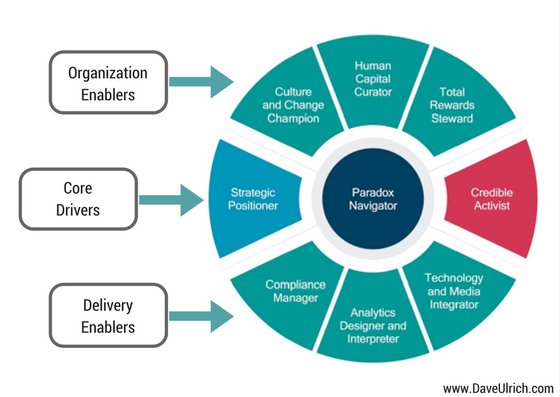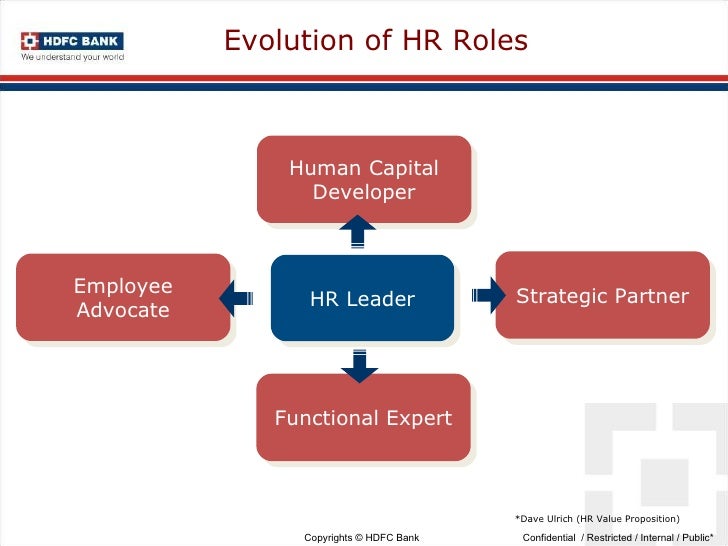| Born | 1953 Ely, Nevada, United States |
|---|---|
| Alma mater | Brigham Young University UCLA |
| Occupation | Professor,[1][2]management consultant, author, speaker |
Dave Ulrich - Professor, Stephen M. Ross School of Business, University of Michigan and Partner, the RBL Group Norm Smallwood - Partner, the RBL Group Prepared for HR Magazine. Dave Ulrich: HR Transformation When I ask a group of HR practitioners about different authors Dave Ulrich is the only HR academic who is routinely recognized by a majority of people. His most recent book is HR Transformation: Building Human Resources from the Outside in. He has written many books, but this one interested me in particular because it.
David Olson Ulrich (born 1953) is a university professor, author, speaker, management coach, and management consultant. Ulrich is a professor of business at the Ross School of Business,[1]University of Michigan and co-founder of The RBL Group.[3] With his colleagues, he has written over 30 books that have shaped the HR profession, defined organizations as capabilities, and shown the impact of leadership on customers and investors. Ulrich served on the Board of Directors for Herman Miller for 17 years, is a Fellow in the National Academy of Human Resources,[4] and served on the Board of Trustees of Southern Virginia University for 9 years.
On our website you will find a great number of best free online games to download. GamesGoFree.com provides more than 50 different game categories: free Alien Games, perplexing arcades, dazzling puzzles and brain-twisters, captivating games for boys and girls, absorbing board games, etc. Free alien game download.
Dave Ulrich has been ranked the #1 Management Educator & Guru by BusinessWeek,[5] selected by Fast Company as one of the 10 most innovative and creative leaders,[6] is one of 21 people in the Thinker's Fifty Hall of Fame, and named the most influential thinker in HR of the decade by HR magazine.[7]
Early life and work[edit]

Ulrich was born in the small town of Ely, Nevada, but grew up in Oregon. His father worked as a forester building campgrounds, then transferred in order to direct social programs for Job Corps. His mother spent time in church and community service. From his parents, he learned the importance of service and the value of hard work. The Ulrich family lived subsequently in Kansas City, Missouri, where he attended high school.

Ulrich attended Brigham Young University where he completed his undergraduate degree in University Studies in five semesters and began graduate school in Organizational Behavior. He was awarded Honorary Doctorate from Abertay University, Dundee Scotland.
Research and career[edit]
Dave Ulrich’s professional focus has addressed questions on how organizations add value to customers and investors through both leadership and strategic human resource practices. In the human resource area, he and his colleagues have worked to redefine and upgrade HR. With his colleagues, Ulrich has articulated how the modern HR organization can be organized into shared services, centers of expertise, and business partners.[8] He has also co-directed research on over 90,000 respondents about the competencies required for successful HR professionals;[9] in addition, he has helped shape thinking on how to transform HR practices so that they are aligned to customer needs and integrated around organization capabilities.[10] In the leadership area, Norm Smallwood and Ulrich have worked to focus on the outcomes of effective leadership;[11] they have also shown how leadership will increase customer share by creating a leadership brand within the company.[12] Their work also illustrates that investing in leadership will increase shareholder value.[13] Their work also synthesizes the thicket of leadership competency models into a unified view of leadership.[14] Their current work attempts to look at leadership through the eyes and expectations of investors.[citation needed]. Dave spoke as part of Asian Institute of Finance's Distinguished Speaker Series in 2014.[15] In addition, he has shown how leadership can impact investor value by creating a leadership capital index that can be used in private equity, investor relations, boards of directors, and other settings. In the organization area, he has defined organizations as capabilities and written about culture change, learning, collaboration, change, and innovations in organization design.
Bibliography[edit]
- Books
Dave Ulrich Hr Model Pdf
- Ulrich, Dave; Younger, Jon; Brockbank, Wayne; Ulrich, Mike (2012). HR from the outside in: the next era of human resources transformation. New York: McGraw-Hill. ISBN9780071802666.
- ——; Brockbank, Wayne; Younger, Jon; Ulrich, Mike (2012). Global HR competencies: mastering competitive value from the outside in. New York, NY: McGraw-Hill. ISBN9780071802680.
- ——; Sutton, Robert (2010). Asian Leadership: What Works. Singapore Ministry of Manpower; McGraw-Hill. ISBN9780071084307.
- —— (2010). Leadership in Asia: challenges, opportunities, and strategies from top global leaders. New York: McGraw-Hill. ISBN9780071743846.
- ——; Ulrich, Wendy (2010). The Why of Work: How Great Leaders Build Abundant Organizations That Win. New York: McGraw-Hill. ISBN9780071739351.
- ——; Allen, Justin; Brockbank, Wayne; Younger, Jon; Nyman, Mark (2009). HR Transformation: Building Human Resources from the Outside In. Chicago: McGraw-Hill. ISBN9780071638708.
- ——; Brockbank, Wayne; Johnson, Dani; Sandholtz, Kurt; Younger, Jon (2008). HR Competencies: Mastery at the Intersection of People and Business. Alexandria, Va: Society for Human Resource Management. ISBN9781586441135.
- ——; Smallwood, W. Norman (2007). Leadership Brand: Developing Customer-Focused Leaders to Drive Performance And Build Lasting Value. Boston, MA: Harvard Business School Press. ISBN9781422110300.
- ——; Eichinger, Robert W.; Ruyle, Kim E. (2007). FYI for Strategic Effectiveness: Aligning People and Operational Practices to Strategy. Minneapolis, MN: Lominger. ISBN1933578068.
- ——; Eichinger, Robert W.; Kulas, John; De Meuse, Ken (2007). 50 More Things You Need to Know: The Science behind Best People Practices for Managers and HR Professionals. Minneapolis, MN: Lominger. ISBN1933578084.
- ——; Smallwood, Norm (2006). How Leaders Build Value: Using People, Organization and Other Intangibles to Get Bottom-Line Results. Hoboken, NJ: Wiley. ISBN047176079X.
- ——; Brockbank, Wayne (2005). The HR Value Proposition. Boston, MA: Harvard Business School Press. ISBN1591397073.
- ——; Losey, Michael; Meisinger, Sue (2005). Future of Human Resource Management: 64 Thought Leaders Explore the Critical HR Issues of Today and Tomorrow. Hoboken, NJ: Wiley. ISBN0471677914.
- ——; Carter, Louis; Goldsmith, Marshall; Bolt, Jim; Smallwood, Norm (2003). The Change Champion's Fieldguide: Strategies and Tools for Leading Change in Your Organization. New York: Best Practice Publications. ISBN0974038806.
- ——; Smallwood, W. Norman (2003). Why the Bottom Line Isn't: How to Build Value Through People and Organization. Hoboken, NJ: Wiley. ISBN047144510X.
- Carter, Louis; Ulrich, Dave; Goldsmith, Marshall (2005). Best Practices in Leadership Development and Organization Change: How the Best Companies Ensure Meaningful Change and Sustainable Leadership. San Francisco: Pfeiffer. ISBN0787976253.
- Lawler, Edward E.; Ulrich, Dave; Fitz-enz, Jac; Madden, James; Maruca, Regina (2004). Human Resources Business Process Outsourcing: Transforming How HR Gets Its Work Done. San Francisco: Jossey-Bass. ISBN0787971634.
- Lombardo, Michael M.; Eichinger, Robert W.; Ulrich, Dave; Cannon, Kathleen (2004). 100 Things You Need to Know: Best Practices for Managers and HR. Minneapolis, MN: Lominger. ISBN0974589209.
- Ulrich, Dave; Kerr, Steve; Ashkenas, Ron (2002). GE Workout: how to implement GE's revolutionary method for busting bureaucracy and attacking organizational problems--fast!. New York: McGraw-Hill. ISBN0071384162.
- Becker, Brian; Huselid, Mark; Ulrich, Dave (2001). HR Scorecard: Linking People, Strategy, and Performance. Boston, MA: Harvard Business School Press. ISBN1578511364.
- Ulrich, Dave; Zenger, Jack; Smallwood, Norm (1999). Results Based Leadership: How Leaders Build the Business and Improve the Bottom Line. Boston: Harvard Business School Press. ISBN9781578513192.
- Yeung, Arthur K.; Ulrich, Dave; Nason, Stephen W.; Von Glinow, Mary A. (1999). Organizational Learning Capability: Generating and Generalizing Ideas with Impact. New York: Oxford University Press. ISBN0195102045.
- Ulrich, Dave (1998). Delivering Results: A New Mandate for Human Resource Professionals. Boston: Harvard Business School Press. ISBN0875848699.
- ——; Losey, Michael R.; Lake, Gerry (1997). Tomorrow's HR Management: 48 Thought Leaders Call for Change. Chichester, England; New York: Wiley. ISBN0471197149.
- —— (1997). Human Resource Champions: The Next Agenda for Adding Value and Delivering Results. Boston, MA: Harvard Business School Press. ISBN0875847196.
- Ashkenas, Ron; Ulrich, Dave; Kerr, Steve; Jick, Todd (1995). The Boundaryless Organization: Breaking the Chains of Organization Structure. San Francisco: Jossey-Bass. ISBN078790113X.
- Ulrich, Dave; Lake, Dale (1990). Organizational Capability: Competing from the Inside Out. New York: Wiley. ISBN0471618071.
Notes[edit]
- ^ ab'David (Dave) O. Ulrich', Faculty Profile, The Ross School of Business, University of Michigan, archived from the original on 2012-09-01, retrieved 2012-10-23
- ^'David (Dave) O. Ulrich', Faculty & Research: Faculty Profiles, The Ross School of Business, University of Michigan, retrieved 2012-10-23
- ^'Biography: Dave Ulrich'(PDF), RBL.net, The RBL Group, 2010, retrieved 2012-10-23
- ^'NAHR Fellows: Class of 1994', National Academy of Human Resources, retrieved 2012-10-23[dead link]
- ^Schneider, Mica (October 14, 2001), 'Business Schools: Rating the Management Gurus', BusinessWeek, retrieved 2012-10-23
- ^Conley, Lucas (August 1, 2005), 'The Once Future Consultant', Fast Company, retrieved 2012-10-23
- ^http://www.hrmagazine.co.uk/hr-most-influential/profile/dave-ulrich-rensis-likert-professor-ross-school-of-business-university-of-michigan
- ^Ulrich, Dave (2005), HR Value Proposition, Harvard Business School Press, archived from the original on 2009-02-17, retrieved 2009-02-10[non-primary source needed]
- ^Ulrich, Dave (2008), HR Competencies, The Society for Human Resource Management, archived from the original on 2009-02-17, retrieved 2009-02-10[non-primary source needed]
- ^Ulrich, Dave (2009), HR Transformation, The RBL Group[non-primary source needed]
- ^Ulrich, Dave (1999), Results-Based Leadership, Harvard Business School Press, archived from the original on 2009-02-17, retrieved 2009-02-10[non-primary source needed]
- ^Ulrich, Dave (2007), Leadership Brand, Harvard Business School Press, archived from the original on 2009-02-17, retrieved 2009-02-10[non-primary source needed]
- ^Ulrich, Dave (2003), How Leaders Build Value, John Wiley & Sons, archived from the original on 2009-02-18, retrieved 2009-02-10[non-primary source needed]
- ^Ulrich, Dave (2008), Leadership Code, Harvard Business Press, archived from the original on 2009-02-17, retrieved 2009-02-10[non-primary source needed]
- ^http://www.aif.org.my/events/aif-s-distinguished-speaker-series-building-a-stronger-organisation-through-talent-and-culture
Dave Ulrich 4 Pillars
References[edit]
- Losh, Adrienne (2006-06-15), 'Dave Ulrich Tops List of Most Influential Leaders in Human Resources', News Room (press release), Ross School of Business, University of Michigan, archived from the original on 2012-09-13, retrieved 2012-10-23
- Dave Ulrich tells HR delegates in Budapest to focus on leadership qualities, Personnel Today (Reed Business Information), 11 May 2007, archived from the original on 19 April 2012, retrieved 23 October 2012
External links[edit]
| Wikiquote has quotations related to: Dave Ulrich |
